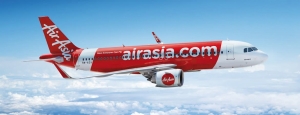AirAsia's pivot to food delivery comes as the company faces an existential threat to its core air travel business. Given the mercurial nature of the coronavirus, countries have showed little willingness to reopen borders or jettison mandatory quarantines. As long as such restrictions remain standard, international air travel will be grounded.
Luckily, AirAsia secured an RM300 million loan in November from Malaysia's Sabah Development Bank. The company is using the loan to grow its portfolio of digital services.
In Singapore, food delivery is a large and growing business. Statista estimates it reached US$464 million in value last year. However, AirAsia faces a wide range of competitors. Besides Grab, there are Deliveroo, Food Panda, WhyQ, Chope On and Pickupp. However, AirAsia will have to subsidize merchants and consumers to gain market share. The company has already said that it would not charge merchants commissions on transactions.
Along with food delivery, the Malaysian carrier is also expanding its fintech services in Singapore. In late 2020, it launched the Big Pay e-wallet in the city-state.
While Singapore has no shortage of e-wallets, BigPay is focusing on the remittances segment. Given Singapore's large migrant worker population, remittances are a good long-term bet. The pandemic will only depress the market for so long. Using BigPay, AirAsia's customers will be able to remit money throughout Southeast Asia as well as to India, Nepal, Bangladesh, China and Australia.
In its home market, AirAsia could boost its super app prospects by applying for a digital bank license. Bank Negara Malyasia plans to issue up to six of them by 2022. The airline's e-wallet BigPay is already widely used in its home market. Most of its 1.2 million users are there. Developing a full suite of higher margin digital banking products could help AirAsia transition from budget airline to super app.
Post-pandemic, if AirAsia has a digital bank license in Malaysia, it may be able to bundle travel and banking services, with card companies, hotels and travel-booking platforms as partners. In fact, it already has a partnership with Agoda. Offering customers a unique set of services under the same umbrella would differentiate AirAsia from other digital banks and help it define a strong value proposition.

